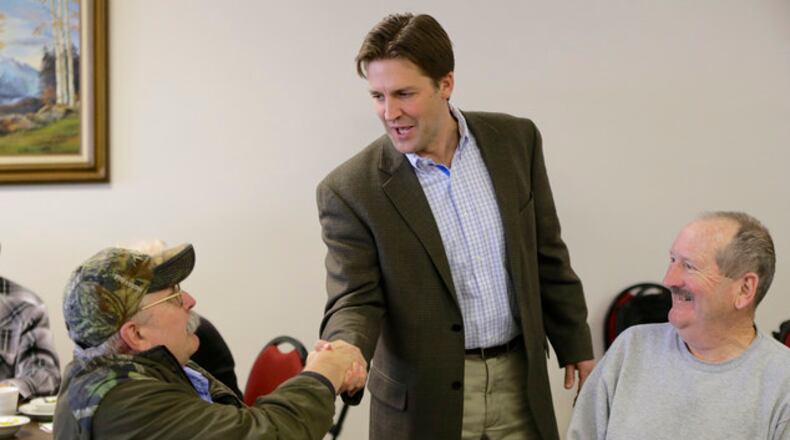As a good conservative, U.S. Sen. Ben Sasse of Nebraska must claim to be ecstatic at the chance that the Supreme Court will overturn a key component of ObamaCare this summer. After all, Sasse won election last year warning that if ObamaCare lives, "America as we know it will die." In addition, his home state is one of the seven states that filed suit against the law in King v. Burwell.
Sasse is also a pretty smart guy (he has a Ph.D in history from Yale, writing his dissertation on the post-'50s populist conservative movement and the role played by religion). And as he writes in the Wall Street Journal, he has peered into his crystal ball and seen potential disaster looming:
What will happen next is predictable: A deluge of attacks on Republicans for supposedly having caused this. Daily White House emergency briefings. Liberal interest-group ads of wheelchairs going over cliffs. President Obama 's cheerleaders in the media screaming that ideologues are killing patients.
When Team Obama then turns its guns on the holdout states and their 37 governors, the political pressure to adopt ObamaCare will be crippling. I fear that most governors will fold. We've already seen some Republican governors finesse their principles to expand Medicaid and secure extra money. The new pressure will be even more acute. If governors cave, ObamaCare is never going away."
I'd say that's pretty accurate. The HHS secretary and other administration officials do indeed claim that the administration has no backup plan if the ruling goes against them, because it's hard to see what that backup plan might be. As Burwell puts it, "We know of no administrative actions that could, and therefore we have no plans that would, undo the massive damage to our healthcare system that would be caused by an adverse decision."
As Sasse notes, that would cause real pain, even death, to an awful lot of Americans, and conservatives would bear the brunt of the political backlash both because they forced the issue and because after five years of promising a replacement, they have yet to begin any real work on creating one. Since Nebraska is one of the states that have refused to create its own insurance exchange, Sasse would be among those on the receiving end of the barrage.
What to do to avert the coming chaos? It says a lot about the GOP predicament that Sasse's proposed solution has absolutely zero chance of ever being implemented. As he explains in his op-ed, he will soon introduce a bill that would allow all Americans to keep both their current policies and their subsidies for another 18 months, while an alternative is worked out.
"This would simultaneously avert the full-scale implementation of ObamaCare in these 37 suddenly desperate states," he writes. "It would also help protect suffering patients entangled in the court’s decision to strike down illegal subsidy payments."
That sounds rational, and theoretically, the Sasse plan might indeed do those things. Other Republican senators are apparently thinking along the same lines. But believing in his plan requires believing that fresh off an exhilarating court victory, congressional Republicans would vote to extend federal subsidy payments for another 18 months. I don't know how anybody who has watched Congress over the past five years -- including its current impasse over Homeland Security funding -- could ever believe that is possible, particularly in the House.
The second part of the Sasse plan is almost equally fanciful. Once that 18-month "grace period" is established, he proposes that the Republican Party use the time "to unify around a specific set of constructive, longer-term solutions, and then turn the 2016 presidential election into a referendum on two competing visions of health care."
Theoretically, that too would be nice. But the idea that Republicans could reach such an intraparty consensus -- particularly in the middle of a presidential primary season -- is ludicrous. In short, a plan that requires Republicans to vote to extend ObamaCare subsidies another 18 months while the party gets its act together is useful mainly as a measure of just how desperate the smarter members of the GOP have become.
About the Author
Keep Reading
The Latest
Featured

